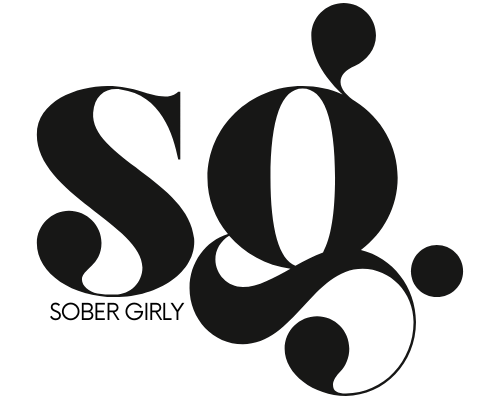7 Alcohol-Free Morning Routines to Kickstart Your Day

I. Introduction
Starting your day without alcohol can really change your life. It helps you stay healthy and focused. It’s a great way to begin your day right.
Choosing to skip alcohol in the morning can make you feel better. It’s good for anyone who wants to be healthier or stay sober. It helps you make good choices all day long.
Being consistent is important for these routines. Think about what you need in the morning. This way, you can handle the day better and stay sober.
Key Takeaways
- Alcohol-free morning routines promote overall well-being
- Intentional mornings set a positive tone for the day
- Consistent wellness routines support sobriety
- Reflecting on personal needs helps tailor morning habits
- Healthy habits in the morning lead to better choices later
- Morning routines can significantly boost mood and energy
II. The Power of Alcohol-Free Mornings
Starting your day without alcohol can change your life. In 2024, a quarter of US adults tried Dry January. This shows more people want to live soberly. Let’s see how skipping alcohol in the morning can make your life better and healthier.
A. Benefits of starting your day without a hangover
Waking up without a hangover feels great. It helps you face the day with energy and focus. Many people feel better after two weeks without alcohol, with even more benefits after four weeks.
B. How morning routines set the tone for the rest of the day
A good morning routine can make you more productive and confident. Adding mindfulness and intentional living to your morning helps you succeed. For example, drinking water first thing can give you energy and help you stay hydrated.
C. The role of habits in supporting long-term sobriety
Building healthy habits is key to staying sober. Start with small changes, like a short exercise or meditation. These habits help you stay strong and focused on your recovery.
Key Takeaways
- Alcohol-free mornings improve clarity and energy levels
- Structured routines boost productivity and reduce stress
- Hydration and nutrition play key roles in morning wellness
- Small, consistent habits support long-term sobriety
- Mindfulness practices contribute to emotional balance
- Gradual implementation of new routines leads to success
III. 7 Alcohol-Free Morning Routines
Starting your day without alcohol can change your life. It’s all about self-care and activities that make you feel alive. Let’s look at seven morning routines to help you begin your alcohol-free journey.
These routines are easy yet powerful. They help you build a healthier, happier life without alcohol. Pick one or two routines that you like and start small. Then, add more as you get better at them.
Key Takeaways
- Self-care rituals are crucial for maintaining sobriety
- Energizing activities can replace the need for alcohol
- Consistent morning routines can lead to increased earnings
- Exercise is a vital part of many successful morning routines
- A healthy breakfast is important but often overlooked
- Simplifying morning tasks can boost productivity
- Adapting routines to fit your lifestyle is key to success
Mindful Meditation or Breathing Exercises
Mindfulness practices are a great way to start your day. They help clear your mind and balance your emotions. These methods have been used for thousands of years and are now supported by science.
Studies show that regular mindfulness can change your brain. It improves your well-being and helps with anxiety and stress.
Benefits for Mental Clarity and Emotional Balance
Adding mindfulness to your morning can change your day. Even short meditation can boost your focus, memory, and mood. It’s especially helpful for those in recovery, reducing stress and cravings.
Simple Techniques to Get Started
Start with focused breathing. Sit comfortably, close your eyes, and focus on your breath. This simple act helps your body relax.
Try body scanning too. Mentally check each part of your body, letting go of tension as you go.
Recommended Duration for Beginners
Begin with 5-10 minutes of mindfulness each morning. Even short sessions can be beneficial. As you get more comfortable, you can increase your time.
Remember, being consistent is important. It’s the key to enjoying the benefits of mindfulness in your morning routine.
Light Exercise or Yoga
Starting your day with light exercise or yoga is great. It boosts your mood and helps you feel better. Adding movement to your morning helps build healthy habits.
Energizing Your Body and Mind
Morning movement wakes up your body and sharpens your mind. A 20-minute walk or gentle yoga session can make you feel better. Exercise helps reduce stress and anxiety, which is good for recovery.
Quick and Effective Exercises
You don’t need a gym to get moving. Try these simple exercises at home:
- Stretch for 5 minutes
- Do 10 jumping jacks
- March in place for 2 minutes
- Perform 5 push-ups
- Hold a plank for 30 seconds
Start small and be consistent. It takes about 66 days for a new habit to stick. Be patient with yourself.
Beginner-Friendly Yoga Poses
Yoga is great for recovery because it combines movement with mindfulness. Try these beginner poses:
- Child’s Pose: Relaxes the body and calms the mind
- Cat-Cow Stretch: Improves spine flexibility
- Mountain Pose: Enhances posture and balance
- Downward Facing Dog: Stretches the entire body
By adding these activities to your morning, you’re helping yourself stay sober and healthy.
Journaling or Gratitude Practice
Starting your day with journaling or gratitude is very powerful. It’s a great way to take care of yourself. It helps those in recovery feel better emotionally and get ready for the day.
The Therapeutic Benefits of Writing in Recovery
Journaling helps you see how far you’ve come. It lets you celebrate your wins and find areas to improve. It’s a way to think deeply and stay emotionally balanced. Many people find it really helpful, especially if they do it every day.
Prompts for Morning Journaling
Here are some prompts to start your journaling:
- Write a short letter to yourself as a fan
- List your long-term goals and break them down into steps
- Explore your secret hopes and dreams
- Record daily habits that bring you happiness
- Plan for self-care when you’re feeling exhausted
How to Start a Gratitude Practice
Gratitude practices can really help your recovery and well-being. Here are easy ways to add gratitude to your morning:
- Take five minutes to express appreciation for simple things
- Show gratitude through acts of kindness or volunteering
- Be mindful of positive interactions throughout the day
- Keep a gratitude journal to cultivate mindfulness
Remember, being consistent is important. Writing or practicing gratitude every day can make you feel better. It supports your journey to sobriety.
Nutritious Breakfast
Start your day with a healthy breakfast. It’s key to your wellness routines. A good breakfast helps you recover and gives you energy all day.
Nutrition and Recovery Connection
A healthy breakfast helps your body recover. It fills up your liver glycogen and keeps your digestive system healthy. Studies show that people who keep weight off often eat breakfast every day.
Quick and Healthy Breakfast Ideas
- Protein-packed smoothies with fruits and vegetables
- Oatmeal topped with nuts and berries
- Eggs with whole-grain toast and avocado
- Greek yogurt parfait with granola and fresh fruit

Mood and Energy-Boosting Foods
Some foods can make you feel better and keep you energized. Green tea helps your metabolism, and ginger tea eases stomach pain. Yerba mate gives you energy without making you jittery. For a quick energy boost, try a snack of 100-150 calories before hard workouts.
Don’t skip breakfast. It can make you feel moody, tired, and hungry. Adding these healthy foods to your morning routine will make your day better and more energetic.
Goal-Setting or Affirmations
Starting your day with a plan sets the tone for a sober, productive life. Small steps each morning lead to lasting change.
The Power of Intention in Sobriety
Clear intentions can help you stay sober. Focusing on your goals each morning strengthens your commitment. This keeps you true to your values all day.
Setting Achievable Daily Goals
Start with small goals each day. Pick 3 key tasks to focus on. This keeps you motivated without feeling too much pressure.
Remember, it takes about 21 days to form a new habit. Be patient with yourself.
- Write down your goals
- Make them specific and measurable
- Set a realistic timeframe
Positive Affirmations for Recovery
Positive affirmations are key in recovery. Spend 3-5 minutes each morning saying affirming statements. They boost your confidence and keep you committed to sobriety.
Examples of positive affirmations:
- “I am strong and capable of maintaining my sobriety”
- “Each day, I grow stronger in my recovery”
- “I choose a healthy, alcohol-free life”
By adding goal-setting and positive affirmations to your morning, you’re moving towards a fulfilling, sober life. This intentional daily approach greatly impacts your recovery journey.
Inspirational Reading or Listening
Starting your day with inspiring content can boost morning motivation. It sets the tone for a productive day. Reading or listening to uplifting material nurtures personal growth and supports your journey in sober living.
The Power of Continuous Learning
Engaging with inspirational content each morning fuels personal development. A study shows that positive interactions, like chatting with a barista, can improve your mood. Similarly, dedicating time to learn new things can energize your mind and spirit.

Resources for Sober Living
There are many resources to enhance your morning routine:
- Books: Read 10 pages daily from personal development books
- Podcasts: Listen to shows like “Sober is Dope” for insights and motivation
- Apps: Use meditation apps for guided morning reflections
Incorporating Reading into Your Routine
To make reading or listening a habit:
- Set aside 20-30 minutes each morning
- Choose material that resonates with you
- Mix it up – alternate between books, podcasts, and apps
- Take notes or journal about what you learn
Remember, your morning routine should be like a personal mixtape. Experiment with different productivity tips to find what works best for you. The goal is to create a morning that energizes and inspires you for the day ahead.
Nature Connection
Connecting with nature in the morning can really help your mood and recovery. A study with 340 people showed that being in nature makes you feel better. It helps you manage drinking better too.
Benefits of Morning Sunlight and Fresh Air
Starting your day with sunlight is great. It makes you feel good and helps your health. Morning light helps your body get ready for sleep, making you feel better overall.
Quick Nature-Based Activities
Try these fun activities in the morning:
- Take a short walk in a nearby park or green space
- Tend to indoor plants or a small garden
- Enjoy breakfast outdoors
- Practice yoga or meditation in a natural setting
Supporting Emotional Well-Being in Recovery
Nature is key in recovery. It affects how you feel and make choices. A study found that being in nature lowers death rates and boosts mental health. Adding nature to your morning routine helps you start the day right.
IV. Tips for Implementing Your Alcohol-Free Morning Routine
Building healthy habits and living intentionally are key to recovery. Let’s look at how to make a strong alcohol-free morning routine for success.
Key Takeaways
- Start with small, manageable changes to your morning routine
- Consistency is crucial for building lasting habits
- Prepare for challenges like grogginess and busy schedules
- Focus on progress, not perfection, when dealing with setbacks
- Prioritize self-care and well-being in your morning routine
A. Start small: How to gradually incorporate new habits
When starting an alcohol-free morning routine, take it one step at a time. Pick just two or three activities to start with. This helps you build confidence and momentum without feeling too much.
B. Consistency is key: Strategies for sticking to your routine
Consistency is the key to lasting habits. Pick your must-do morning activities and do them every day. It’s better to do a little bit every day than to try too much and fail.
V. Overcoming Common Challenges
A. Dealing with morning grogginess or low motivation
Feeling tired in the morning is normal, especially when you’re new to recovery. Stay hydrated and add some gentle movement to your routine. Even a quick stretch can help wake you up.
B. Making time for your routine in a busy schedule
Self-care is important for recovery. Try waking up 15 minutes earlier or make your morning tasks more efficient. This will give you space for your new habits and practices.
C. Handling setbacks and getting back on track
Remember, recovery isn’t always smooth. If you slip up, don’t get too hard on yourself. Instead, focus on the progress you’ve made and get back to your routine. Every day is a chance to practice your alcohol-free morning habits.
Embracing Alcohol-Free Morning Routines for a Brighter Day
More people are starting their day without alcohol. This choice boosts energy and clarity right away. It helps you succeed in all parts of life.
Recap of Benefits
Alcohol-free mornings bring many benefits. They improve your focus and energy. Studies show they can also lead to better health and help with weight.
Finding Your Perfect Routine
There’s no single right way to start your day. Try different things to find what works for you. It could be meditation, a walk, or a healthy breakfast.
Be patient as you build new habits. It’s worth it for a brighter day. Start small, stay consistent, and enjoy the journey.






